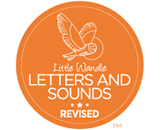Assessment and School Performance
Assessments
Primary school assessments in England involve a combination of statutory assessments, such as the Reception Baseline Assessment, phonics screening check, and Key Stage 2 Standardised Assessment Tests (KS2 SATs), alongside school-led formative assessments. These assessments are designed to track pupil progress and achievement, provide feedback to teachers, and inform school accountability.
Statutory Assessments:
Reception Baseline Assessment:
A short assessment administered in the first six weeks of Year R (Reception) to gauge early literacy, maths, and communication skills. It's not published or shared with parents or schools, and results are used by the Department for Education to measure progress.
Phonics Screening Check:
A short, simple assessment for Year 1 pupils to ensure they have learned to decode phonics to an appropriate standard.
Multiplication Tables Check:
Introduced to assess Year 4 pupils' knowledge of multiplication tables.
Key Stage 2 (KS2) SATs:
Formal assessments at the end of Year 6 in English reading, English grammar, punctuation and spelling, and mathematics. School-level results are published in national performance tables.
Early Years Foundation Stage (EYFS) Profile:
While not a test, this profile captures a child's progress and development during their time in the early years.
Non-statutory Assessments
As a school, we use:
Little Wandle assessments in EYFS and KS1 to track phonics and early reading.

PiXL assessments 3 times a year to track the progress of children from Y1 to Y6

TimesTables Rockstars is used from Y2 onwards to track timetables progress.

Accelerated Reader is used from Y2 onwards to track timestables progress.

School Performance:
Link to the School and College Performance measures website
